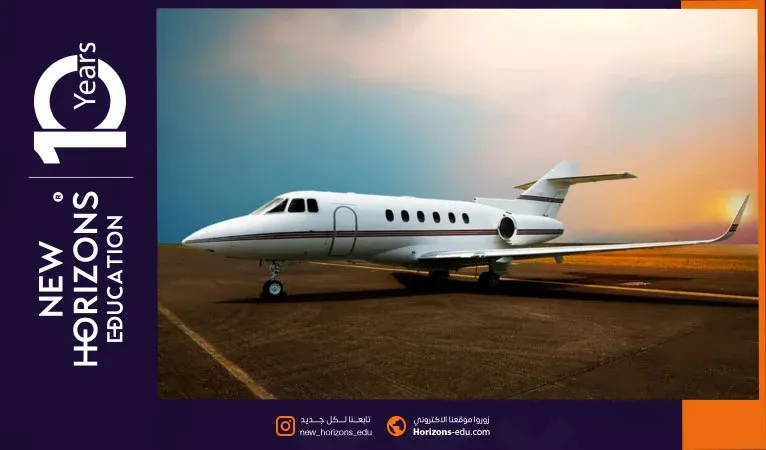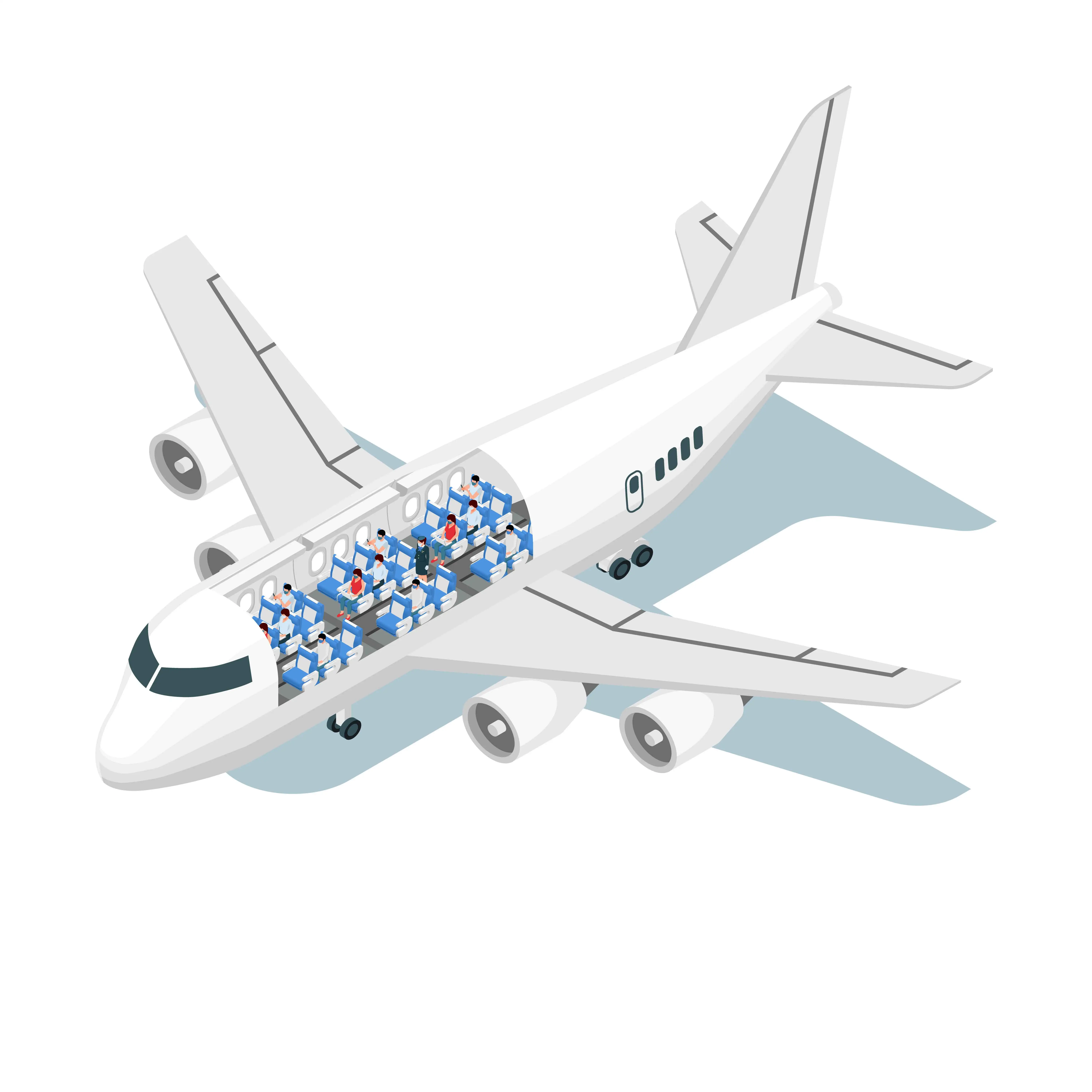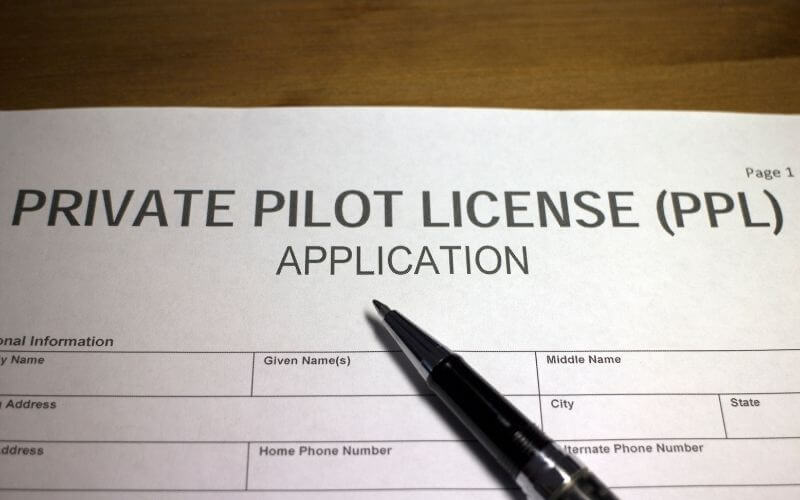
Studying aviation is exciting, and many students are considering it, which prompts them to wonder about the differences between different types of aviation specializations, including the difference between private and commercial aviation.
This article is a guide for anyone wondering about the differences between all types of aviation, especially private and commercial aviation. It's also a starting point for students interested in learning about the future of commercial and private aviation. Read on to discover the most important information.
Before discussing the difference between private and commercial aviation, let's take a general look at types of aviation.
Aviation is divided into several branches and divisions, each with a specific purpose and field of application. The following are the most common and important types of aviation:
There are many aviation specialties in Turkey, including:
You may understand the difference between private and commercial aviation through the definition of each one.
Private aviation is aviation intended for personal or recreational use.
This type of aviation requires a Private Pilot License (PPL). The duties of this type of aviation revolve around:
As we explain private aviation, we should also explain what is Commercial aviation when we speak about the difference between private and commercial aviation.
Commercial aviation is the transportation of passengers or cargo for a fee. It requires a pilot holding a Commercial Pilot License (CPL) or an Airline Transport Pilot License (ATPL).
Commercial aviation includes:

To offer a comprehensive guide about the difference between private and commercial aviation, we should take a quick look at other types of aviation.
General aviation includes all types of aviation, excluding military aviation and commercially scheduled flights. In other words, it includes all flights that do not follow a fixed schedule or pre-arranged schedules, such as regular airline flights.
It includes flights:
Civil aviation is all types of aviation except military aviation, including private aviation, commercial aviation, and general aviation. This type of aviation is used for the transport of passengers, cargo, training, and emergencies.
Military aviation is aviation dedicated to defense, reconnaissance, and combat training. Pilots undergo intensive and rigorous training to fly specific types of aircraft, such as:
Now that you know the types of aviation, their fields, and the required licenses, it's easy to understand the difference between private and commercial aviation.
Read also: Advantages of studying in Turkey
The difference between private aviation and commercial aviation is:
Commercial aviation is a subset of civil aviation. As we mentioned, civil aviation includes commercial aviation, general aviation, and private aviation.
Most people, especially students, wonder about the difference between general and private aviation.
There is a vast difference between the duties of a civilian pilot and those of a military pilot.
Domestic flights are all flights within a country's borders, while international flights are flights outside a country's borders.
For a novice commercial pilot, the flights they fly are usually domestic, and as they gain experience, they are assigned to operate international flights.
Differences between domestic and international flights for both passengers and pilots include:
There are currently four pilot licenses in Turkey:

After we discuss the difference between private and commercial aviation, you may ask about the requirements for studying a student pilot license in Turkey.
Requirements for Obtaining a Student Pilot License in Turkey vary according to the type of license as the following:
Read also: Accredited Turkish private universities in Arab countries 2025
Determining the best specialization depends on your ambitions and financial budget, but in terms of future investment, career development, and salaries, there's no doubt that commercial aviation is the better option for you.
Unlike private aviation, you cannot receive any wages or work in other fields with a private pilot license.
Most students prefer to study aviation at Turkish universities, as they offer an ideal learning environment, including:
Here, we've explained the differences between private and commercial aviation in terms of duties and career prospects. We've also explained the other types of aviation, so you can chart a career path that suits your goals and future endeavors.
If you're interested in studying aviation at Turkish private universities, the New Horizons team offers full support to answer all your questions by requesting a free consultation.
Contact us now for more information about studying in Turkey.
Resources
I'm a passionate Web Content Writer with over 5 years of experience in creating SEO-friendly content in both Arabic and English. I specialize in writing clear, engaging, and reader-focused content that not only ranks on search engines but also speaks directly to the audiences across various industries, including healthcare, education, religion, tourism, and professional services .
After many years of working on registering thousands of students in Turkish universities, and answering an unlimited number of questions about studying in Turkey, these are the most important questions that concern students
Aviation is a general term that encompasses all types of air travel and aircraft, whether for personal, commercial, military, or training purposes. Commercial aviation, on the other hand, is a subset of civil aviation and refers to the operation of aircraft to transport passengers or cargo for a fee, whether on scheduled or unscheduled flights
A private plane is used for personal or recreational purposes. It is often small, can accommodate a limited number of passengers, and is not permitted to generate income. A commercial plane, on the other hand, is operated by airlines to transport passengers or cargo for a fee. It is larger and equipped with advanced flight systems.
A private pilot is someone who holds a Private Pilot License (PPL) that allows them to fly a light aircraft for non-commercial purposes, such as recreation or personal transportation, and is not authorized to work for a fee, such as transporting passengers or cargo.
Civil aviation includes all non-military flights, whether commercial, private, or training. Commercial aviation, on the other hand, is a branch of civil aviation used for profit by transporting passengers or cargo for a fee.
Yes, private flying is considered easier than commercial flying in terms of study requirements, number of flight hours, and required tests.